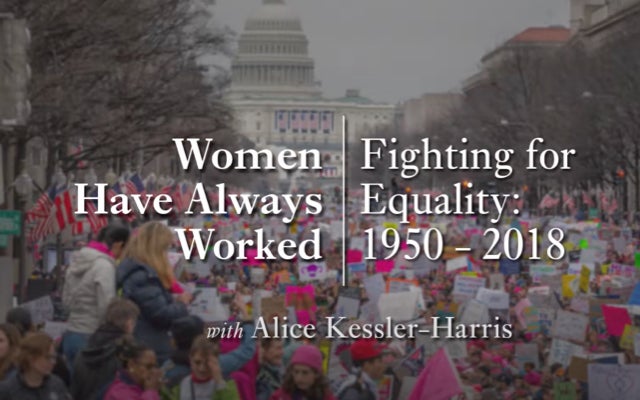
Women Have Always Worked, an edX Course Exploration, 51-60
Video Gallery
Women Have Always Worked: Fighting for Equality: 1950–2018.
An exploration from an online edX course.

The following are video previews from the edX course “Women Have Always Worked” presented by Alice Kessler-Harris and Columbia University.
Women Have Always Worked: Fighting for Equality: 1950–2018.
An exploration from an online edX course.
Lowell built on the advances made in the British textile industry, such as the use of the power loom, to industrialize American textile production. He was the first factory owner in the United States to create a textile mill that was vertically integrated.
The repeated argument I hear from people who are opposed to Oklahoma teachers walking out tomorrow is “we knew what we were doing when we signed up for this.” You’re right. We did. We signed up for the hardest job in the world and putting our kids first. Here’s a poem about it.
Domestic work is the work that makes all other work possible. Together, we can win the protections and recognition that this vital American workforce needs. Join us today!
This site explores the controversial history of the Communist Party in the Pacific Northwest from 1919 to the present. The project is sponsored by the Harry Bridges Center for Labor Studies at the University of Washington and is one of the Pacific Northwest Labor and…
The Southern Historical Association was organized on November 2, 1934 with the idea of promoting an “investigative rather than a memorial approach” to southern history. Its objectives are the defense of history education and historical thinking in the South; the promotion of rigorous research in southern history; the collection and preservation of the South’s historical records; and the encouragement of state and local historical societies in the South.